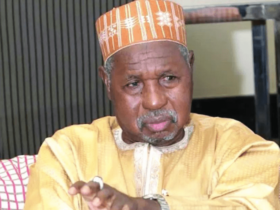
Nigeria’s public debt has surged to N101 trillion, driven by recent borrowings amounting to $4.95 billion from the World Bank over the past year.
This increase, coupled with anticipated loans totaling $4.4 billion, has sparked concerns about the sustainability of the country’s debt and the rising costs associated with servicing external debt.
Data from the Debt Management Office (DMO) shows that Nigeria’s public debt stood at approximately N97 trillion as of December 2023.
The significant rise in debt has been fueled by multiple loans from international lenders to support various socio-economic projects.
Over the past year, the World Bank has approved several loans for Nigeria to address critical infrastructure and social challenges.
On June 9, 2023, the World Bank approved a $750 million loan to enhance Nigeria’s power sector performance.
Additionally, on June 27, 2023, a $500 million loan was approved to expand the Nigeria for Women Programme.
In September 2023, the World Bank granted a $700 million loan for the Adolescent Girls Initiative for Learning and Empowerment project, aimed at enhancing educational opportunities for girls.
On December 14, 2023, a $750 million loan was approved to increase electricity access through distributed renewable energy solutions.
The latest funding, totaling $2.25 billion, includes $1.5 billion for economic stabilization reforms and $750 million to boost non-oil revenues and protect oil and gas revenue.
The Nigerian government also anticipates additional loans, including a $500 million loan to improve connectivity and market access.
Other expected loans include a $750 million loan contingent on the reintroduction of previously suspended taxes, a $500 million loan to address challenges faced by internally displaced persons (IDPs), and a $2.7 billion loan from the African Development Bank (AfDB) for economic and budget support.
Follow the Parallel Facts channel on WhatsApp: https://whatsapp.com/channel/0029VaCQSAoHgZWiDjR3Kn2E









Leave a Reply